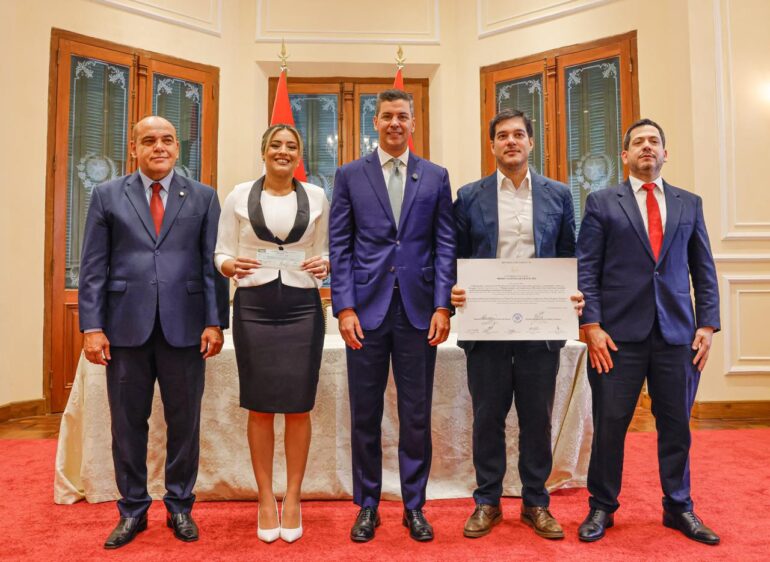The President of Paraguay, Santiago Peña, led the ceremony for the 2024 National Science Award on Wednesday, in an event held at the Government Palace. There, he pledged to provide continuous and permanent funding for the promotion of science and research.
“I would like to congratulate the winners. It is truly an enormous achievement. There are years of work here, and this is building a country; doing research in Paraguay is building a country,” said the President in his speech.
He stressed that the scientific and academic community has achieved a great deal in recent years, but acknowledged that “there is still a long way to go.”
“We still have a long way to go, and I will continue to support this effort. I have made a commitment to provide, before the end of my term, continuous and permanent funding for the science program,” said the President.
He indicated that the goal is for the National Council for Science and Technology (Conacyt) to be a permanent fund established within the National Budget.
“Because just as we invest in health today and no one argues that we have to invest more in health or education, we have to install that same concept in the promotion of science and research,” he added.
The 2024 National Science Award recognised the research work entitled “Phylogeography and transmission of Mycobacterium tuberculosis covering prisons and neighboring communities in Paraguay,” carried out by a group of Paraguayan scientists who had the support and mentoring of researchers from Brazil and Spain.
The research team is led by Dr. Gladys Estigarribia Sanabria, who in her speech on Wednesday said that the National Science Award is a powerful reminder that with vision, scientific rigor, commitment and teamwork we can transform realities.
“We are a team that is still considered junior in the national sciences, but this award gives us a boost of confidence and encourages us to continue working for a better Paraguay,” he said.
The researcher encouraged her peers to continue working with the firm conviction that each step we take on the path of science brings us closer to a fairer, healthier Paraguay, free of epidemics such as tuberculosis.
The work “Phylogeography and transmission of Mycobacterium tuberculosis in prisons and surrounding communities in Paraguay” is the result of a line of research of almost 10 years that addresses a major public health problem: tuberculosis in penitentiaries.
“This work was designed to demonstrate how this health problem increasingly affects people deprived of their liberty. Paraguay currently has the highest incidence rate in the Americas in its prisons and this problem spills over from the prison to society,” said Estigarribia.
He pointed out that of the 4,000 cases of tuberculosis recorded in Paraguay each year, 25% of them occur in prisons and another 25% occur in the community, but because of the prisons. “The problem of prison health is not only a problem for prisoners, it is a problem for the community,” he said.
He stressed that this evidence was accepted for publication in one of the most prestigious health journals in the world, Nature, and later in The Lancet.
“In these publications we are the first Paraguayan research authors, from the interior of the country, contributing knowledge and, most importantly, with funding from Conacyt,” said Estigarribia.
“This would not have been possible without Conacyt, which has been able to gradually support researchers, and help those of us who want to be researchers. Investment in research builds citizenship,” he concluded.


